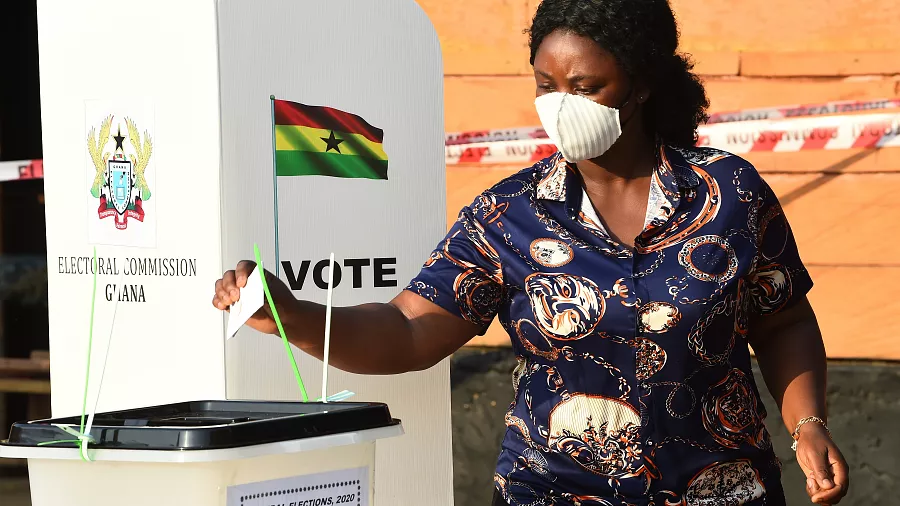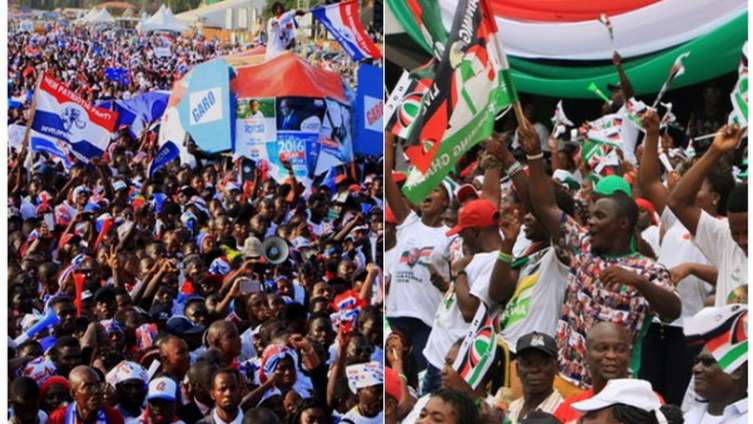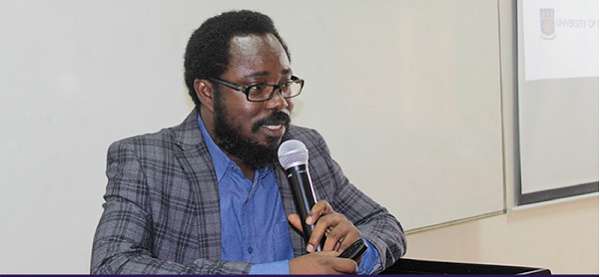In the lead-up to Ghana’s upcoming elections, effective communication strategies are crucial for political parties to connect with voters and increase their support.
Recent polls reveal that both the National Democratic Congress (NDC) and the New Patriotic Party (NPP) face unique challenges and opportunities in their campaign communications.
To improve their communication strategy, political parties should segment the voter market to identify key target groups and develop messages and strategies tailored to their needs, according to Prof. Kobby Mensah, a Political Marketing and Communication Strategist.
In an interview with the Vaultz News, he stated that this approach helps parties craft messages that resonate with each segment, increasing their chances of winning elections
According to Prof. Mensah, a party’s core base is a crucial segment that needs to feel represented and engaged.
He maintained that it is essential to prioritize this group before targeting floating or undecided voters, as neglecting them can lead to losing critical support. “A disaffected core base can significantly impact a campaign’s overall success”.
Prof. Mensah emphasized the importance of first-time voters, who are often considered floating voters, meaning they’re not yet committed to a particular party.
According to him, this segment is crucial for political parties to focus on, as they can be swayed by different messages.
This mix of voters, he noted, presents an opportunity for parties to strategically identify and appeal to their interests.
“The NDC, for instance, has promoted policies like “no fee stress” or free school fees, articulated in their youth manifesto. This policy is crafted to attract young voters, highlighting initiatives that appeal directly to them.
“Such strategies are grounded in the understanding that younger voters are more likely to respond positively to messages that address their immediate concerns”.
Prof. Kobby Mensah
Sentiment analysis, particularly through social media, is now a vital component of political campaigns, according to Prof. Mensah.
He emphasized that addressing negative sentiments among voters is a crucial aspect of campaign strategy.
However, Prof. Mensah stated that it is essential to distinguish between genuine voter sentiments and those expressed by party operatives or supporters, as this helps parties accurately understand public opinion without being skewed by internal biases.
“If dissatisfaction is widespread and stems from everyday voters rather than party activists, parties must address these concerns. They can acknowledge past shortcomings while presenting their policies for the future.
“A party could compare its record favorably against the current administration’s, emphasizing that, despite any past issues, they remain the preferable option due to the incumbent’s failures”.
Prof. Kobby Mensah
Empowering Supporters for Election Success
Furthermore, Prof. Kobby Mensah suggested that to boost campaign support, the NPP should mobilize its core base by highlighting achievements and encouraging supporters to share these successes.
Prof. Mensah emphasized that relying solely on demographics is inadequate, as voters’ initial support based on regional, ethnic, or religious affiliations often takes a backseat to fundamental concerns like employment, healthcare, and education.

The Political Strategist stressed that voters prioritize essential issues over party loyalty, especially when their well-being is at stake.
“Bawumia’s focus on digitalization, while significant, risks appearing disconnected from the current economic challenges faced by everyday Ghanaians, who may see job creation and financial security as more pressing issues.
“Vice President Bawumia, as the NPP’s leading figure, has seen fluctuating support in polls, particularly as his government’s policies face scrutiny. It’s not uncommon for governing parties, especially in their second terms, to experience backlash due to unpopular policies”.
Prof. Kobby Mensah
Prof. Mensah noted that while the NPP may receive accolades for popular initiatives like the free Senior High School program, the general public sentiment tends to shift towards holding incumbent parties accountable for their performance.
According to him, this means that people’s expectations and aspirations evolve over time, making it challenging for incumbents to maintain public favor.
Prof. Mensah further noted that the NDC has a naturally motivated base after spending eight years out of power. “Supporters are driven by the goal of regaining control, and the opposition party can capitalize on this momentum”.
He noted that the incumbent NPP faces internal challenges due to feelings of exclusion and underrepresentation among certain factions.
According to him, this can lead to disenchantment and dissatisfaction, particularly when members perceive limited access to resources or opportunities within the administration. “To unify these groups, the NPP must visibly prioritize inclusivity, demonstrating that all members, especially those previously sidelined, are integral to the campaign”.
Persuasion, Key to Digital Campaign Success
According to Prof. Kobby Mensah, digital platforms are only effective if the messages they convey are persuasive.
Prof. Mensah emphasized that social media campaigns can be successful if paired with relevant and compelling content that resonates with voters’ primary concerns.

Effective social media targeting, Prof. Mensah noted, demands sophisticated strategies that facilitate impactful communication of campaign messages.
“Using Facebook’s algorithms, for instance, allows parties to segment audiences by age or gender, but additional layers of targeting are often necessary to reach specific voter subgroups accurately.
“Young people who understand the nuances of these platforms can play a critical role in delivering targeted, resonant messages, as they are often more attuned to the expectations of their peers”.
Prof. Kobby Mensah
According to Prof. Mensah, campaign teams must develop novel strategies tailored to digital landscapes to effectively engage their audience.
He warned that merely repurposing traditional messaging tactics for social media platforms can lead to ineffective outreach.
As such, he emphasized the need for innovative approaches that leverage the unique strengths of digital channels. “Both the content and delivery methods should reflect contemporary digital trends to ensure relevance”.
Furthermore, Prof. Mensah emphasized that consistency is key to an effective communication strategy in political messaging.
He cautioned that social media platforms, which archive contents, can expose contradictions that damage credibility. “When the presidential candidate makes a statement, for instance, it is critical that the vice-presidential candidate’s remarks align”.
According to Prof. Mensah, inconsistencies in key promises can erode public trust and suggest a lack of coordination within the campaign. “Therefore, consistent and aligned messaging is necessary across all communication channels”.
Moreover, he pointed out that traditional propaganda and misleading tactics are becoming increasingly obvious and ineffective as the public becomes more discerning and media-savvy.
“Voters today demand truthfulness, and platforms like social media make it easier to verify information. Political parties should focus on fact-based, well-researched content rather than relying on propaganda”.
Prof. Kobby Mensah
According to Prof. Mensah, this shift necessitates a commitment to credibility, as withholding trustworthy information can have dire consequences in an era where verification is readily accessible.
READ ALSO: Labour’s Tax Plan Pledges No Impact on Workers’ Pay



















